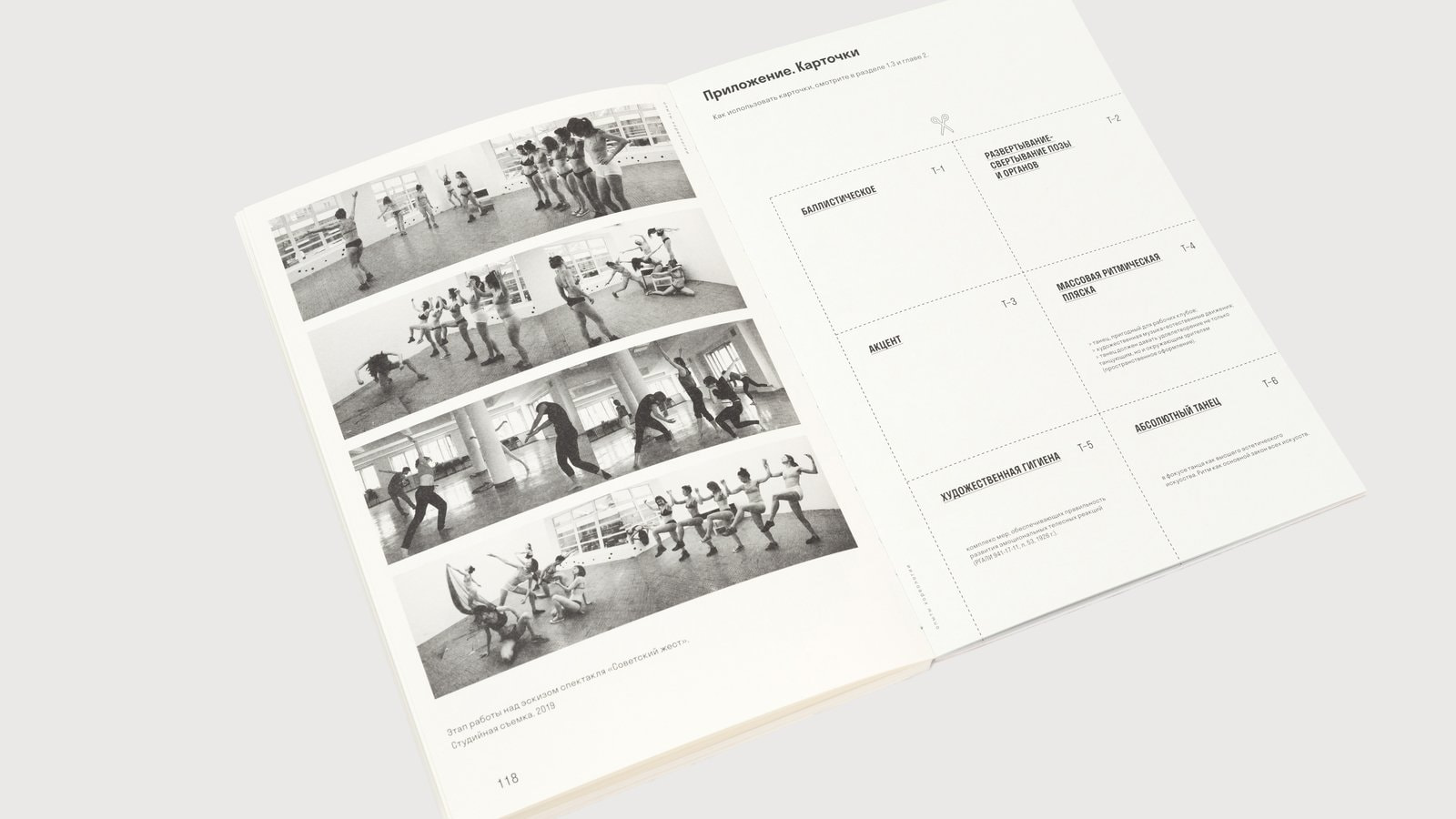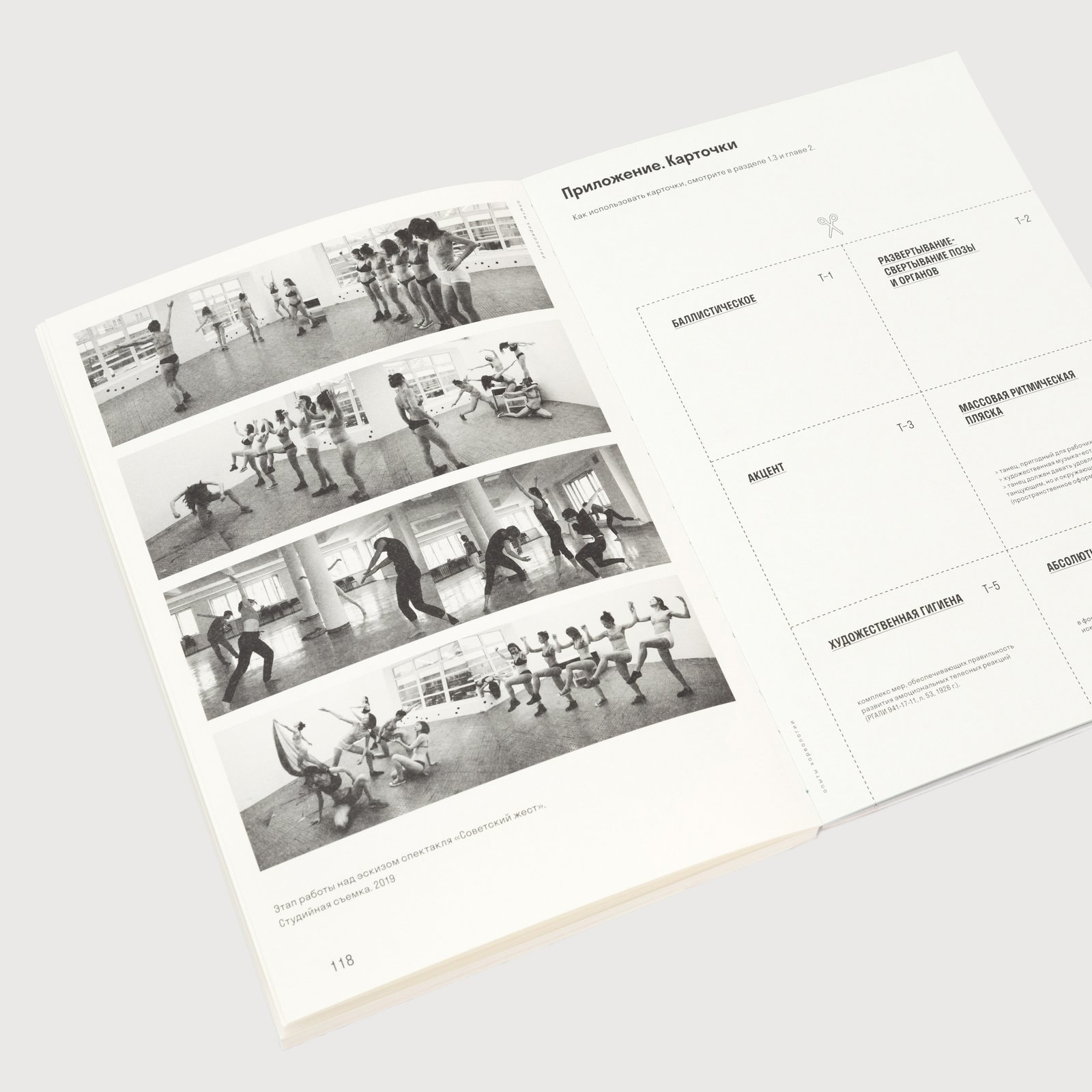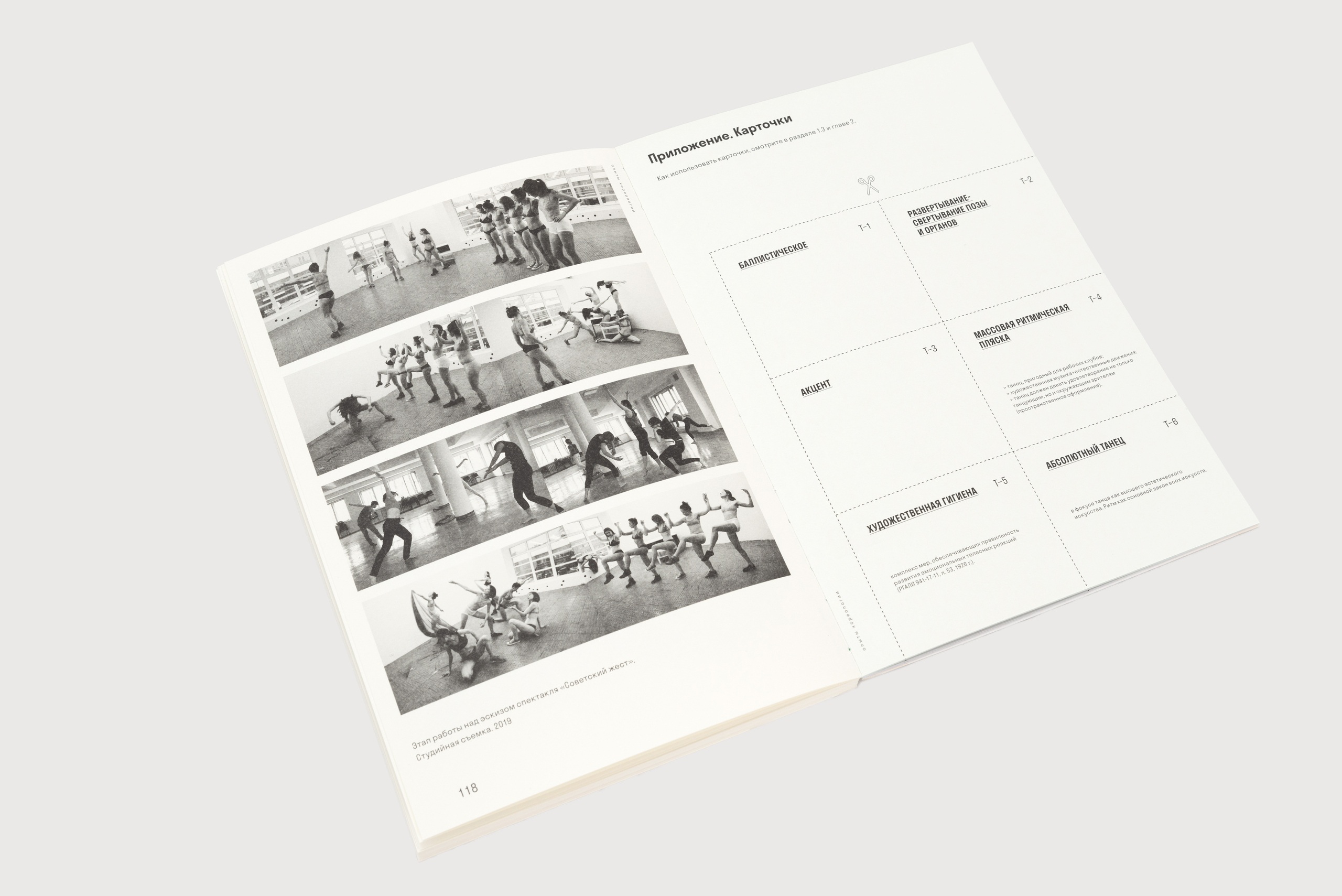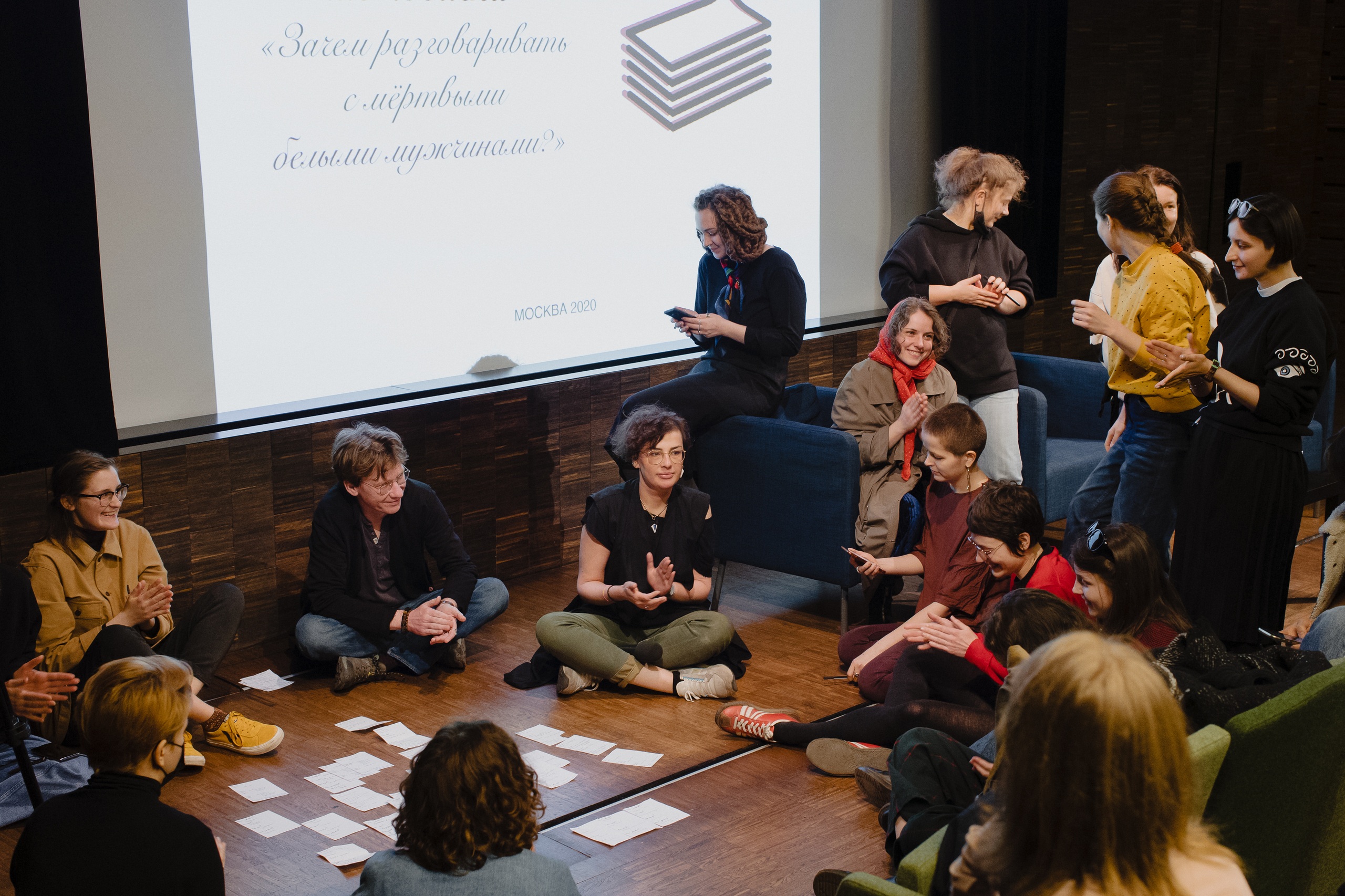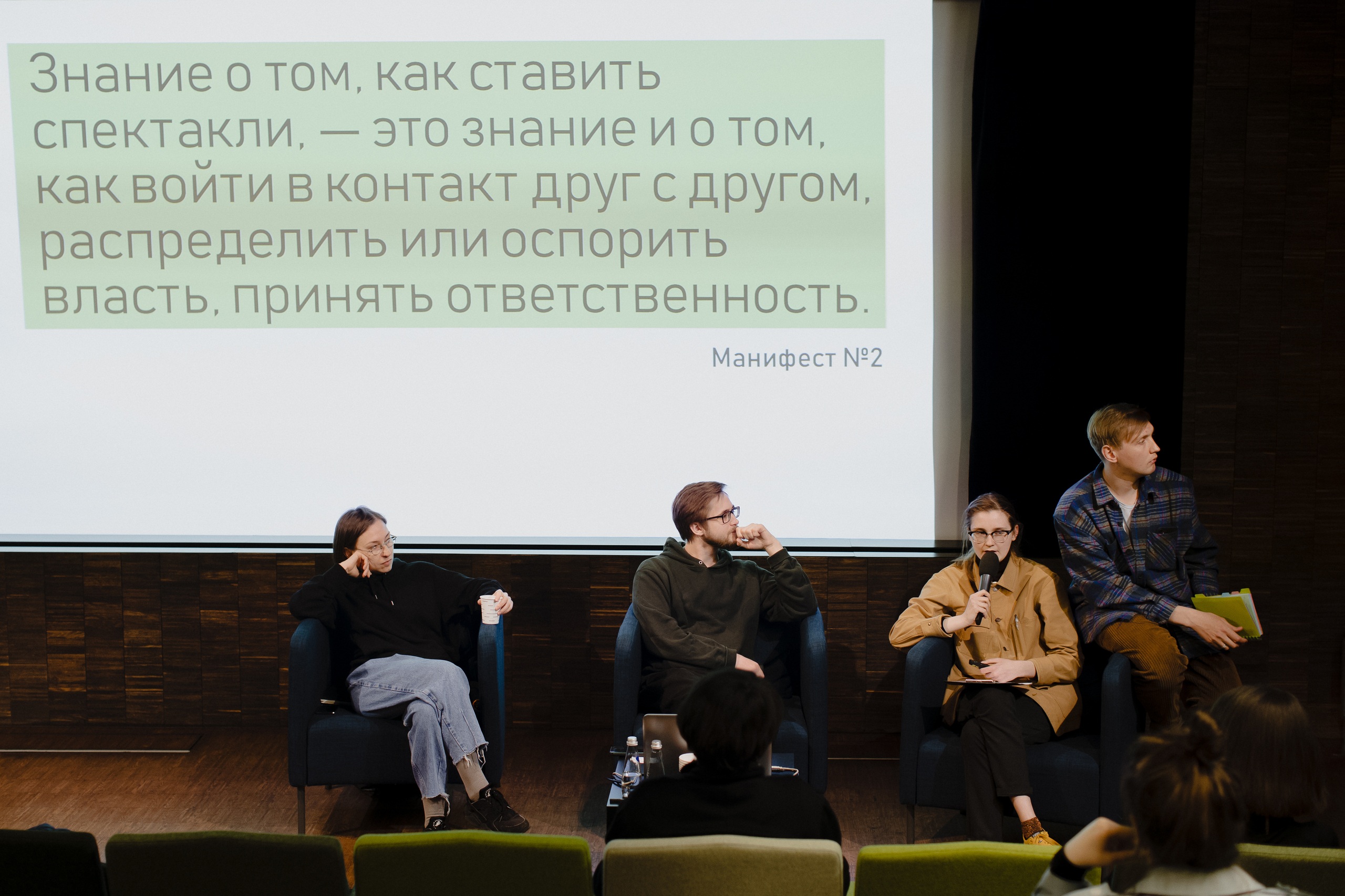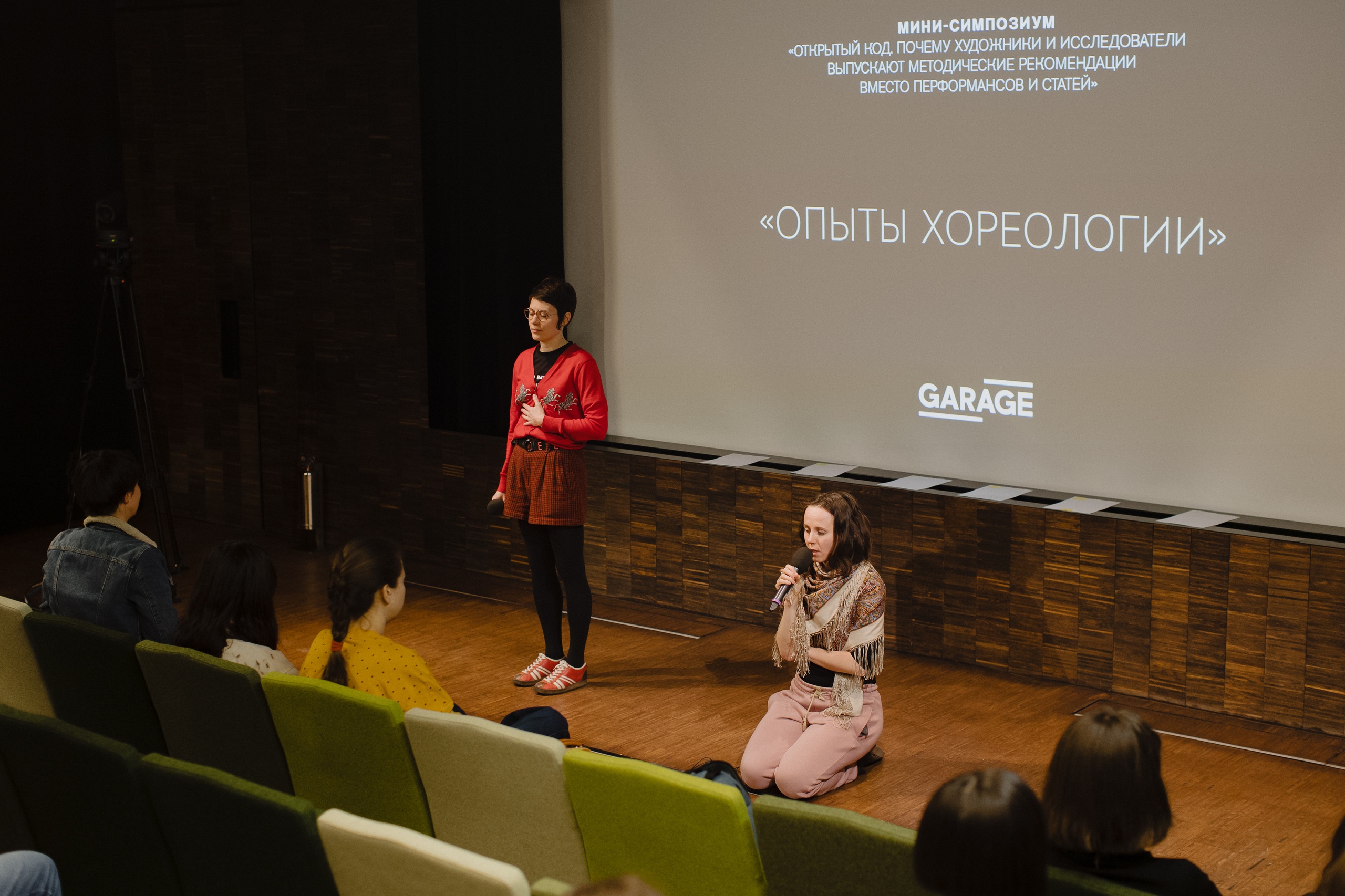From contemporary dance and theatre to humanities research—manuals, lists of exercises, and step-by-step instructions are increasingly used instead of performances and articles. Open Code symposium offers a platform for discussion to practitioners who use this approach in different areas.
In 2020 a few publications in the format of guideline manuals were released in the Russian language, including Experiments in Choreology, or Where the Soviet Gesture Has Led Us by dance artists Daria Plokhova and Alexandra Portyannikova that concluded their Field Research project at Garage; Why Should We Talk to Dead White Men in Our Writings? based on the Research&Write seminar at The Moscow School of Social and Economic Sciences; and Gender Studies in Theatre: Methodology by theatre scholars and practitioners Olga Tarakanova and Darya Yuryichuk.
“These works have been produced through collaborations with an even larger number of people,” says Open Code curator Olga Tarakanova. “They are reports as well as manuals; they invite the reader to repeat what has been done as well as invent new practices. Reading Experiments in Choreology helped me formulate Manifesto №2 for the theatre workshop Extended Day Group that I co-curate at Yermolova Theatre. At Extended Day Group, we practice theatre—we do not produce performances. We believe that by doing theatre, we learn and practice various forms of thinking, writing, and communicating. Knowledge on how to stage a performance is also knowledge on how to connect to each other, distribute or defy power, or take responsibility. How does one share that knowledge? We would like to discuss this question with other practitioners who work with the methodology format.”
Participants will discuss the genre of the manual (Is it a logical development of the ideas of art research and art as production of knowledge or a response to the crisis of contents in conventional art and university education?), the influence of open access manuals on the economic independence of artists and researchers and the possibility of creating a space for the discussion of methodological studies and critique.
The symposium will be interactive: the speakers will not only tell the audience about their methodology writings but share their practices, including physical.
